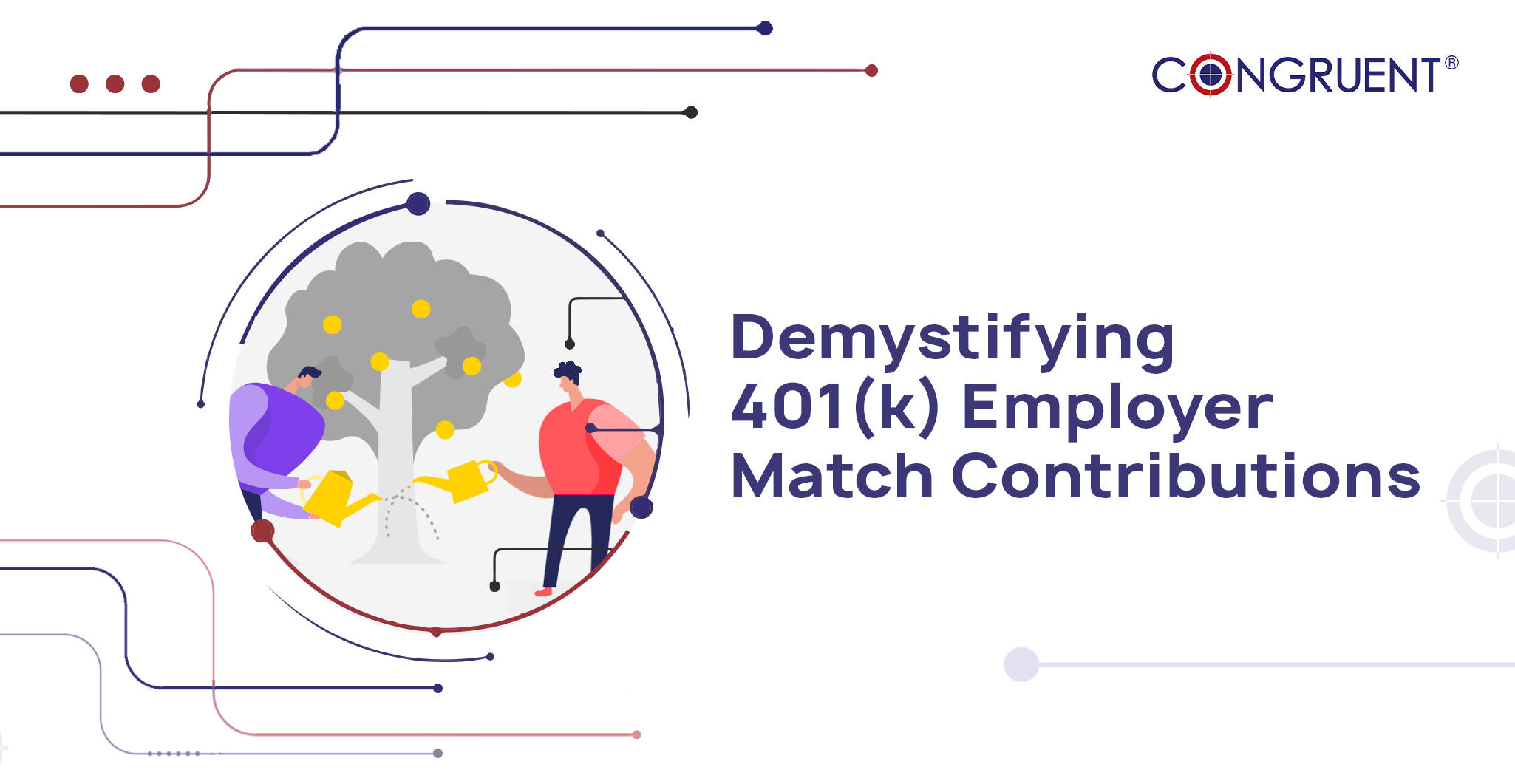
An employer match contribution is the amount of money an employer contributes to a 401(k) plan on behalf of an employee. It is usually based on the employee’s contribution to the 401(k) plan. The employer agrees to match a pre-defined percentage of the employee’s contribution.
Employer matching contributions are an excellent way for plan sponsors to encourage participants to save for retirement. It is also a great way to attract and retain top talent, and a generous match is more attractive to employees.
This article will delve into the details of 401(k) employer match contributions, explore their benefits, and provide best practices for these programs, useful for 401(k) retirement plan administrators and recordkeepers.
What is a 401(k) match, and how does it work?
A 401(k) employer match is a contribution program where employers contribute a predetermined amount based on their employees’ contributions to their retirement plan. The amount is typically expressed as a percentage of the employee’s salary, with the employer promising to match the employee’s 401(k) contributions up to that percentage.
For example, an employer may offer a 50% match up to 6% of the employee’s salary. In this scenario, if an employee earning $50,000 per year contributes 6% (or $3,000) of their salary to their 401(k), the employer would contribute an additional $1,500 (50% match) into the employee’s account.
The primary 401(k) employer match options are:
- Dollar for Dollar Match: The most common employer match option, Dollar for Dollar Match, consists of an equivalent contribution based on employee contributions. It is a limited percentage of their salary. For example, an employer may offer a 1:1 match up to 3% of an employee’s salary.
- Stretch Match: A stretch match requires a higher employee contribution to receive the full employer match. For example, an employer may offer a 50% up to 6% stretch match, meaning that employees must contribute 6% of their salary to receive a 3% match from the employer.
- Dollar Amount Match: A dollar amount match involves a fixed contribution amount by the employer regardless of the employee’s contribution rate. For example, an employer may offer a $500 match for any employee contribution rate.
Benefits of a 401(k) employer match
Employer match programs provide various benefits for both employers and employees. The key advantages include:
- Increased talent attraction and employee retention: A competitive 401(k) match program helps retain top talent, as employees value strong retirement benefits. A competitive 401(k) match program makes the employer more appealing to potential hires.
- Tax benefits: Plan sponsors enjoy tax deductions for matching contributions, making these programs financially advantageous for employees and employers.
- Higher savings: A well-structured employer match program encourages employees to save more for retirement.
Best practices for setting up a 401(k) match
Designing a 401(k) match program involves careful planning and thoughtful consideration of various factors. Below are some best practices for setting up a successful 401(k) employer match program:
- Establish clear goals: Determine the primary objectives of your client’s 401(k) match program. The goal could be to improve employee retention, incentivize higher savings rates, or maintain a competitive benefits package.
- Set realistic match policies: Establish a match policy that best suits your client’s financial situation and goals. According to Fidelity Investments, the average maximum employer match contribution is 4.7%.
- Benchmarking: Review industry standards and competitor offerings to ensure your client’s match policy remains competitive.
- Employee engagement: Consider the financial well-being of participants to motivate them to participate actively.
- Cost-benefit analysis: Evaluate the financial impact of the match policy on your client’s bottom line and long-term employee retention.
- Automatic enrollment: Ensure the implementation of automatic enrollment to boost participation rates. It also helps participants to start saving early.
Making matching easier
An effective 401(k) match plan demands efficiency, accuracy, and adaptability. Plan administrators can benefit from using technology solutions to streamline and automate the designing of 401(k) employer contribution match plans for clients.
Industry-oriented retirement plan administration solutions by Congruent Solutions offer cutting-edge technology to seamlessly manage the complexities of contribution calculations, compliance, and data management. From automating contributions to managing vesting schedules and compliance with IRS regulations, it simplifies the intricacies of 401(k) plan management. The self-serve dashboard allows plan sponsors to make decisions based on real-time data.
